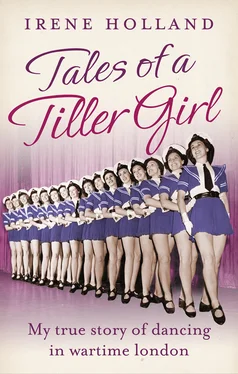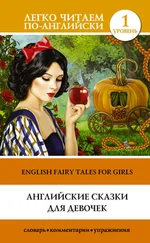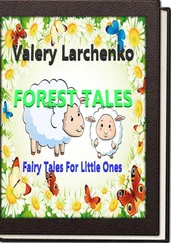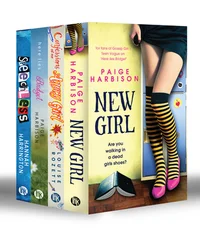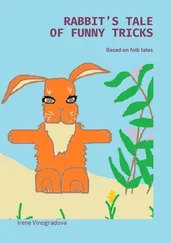I wanted to say how sorry I was about his horse, but no matter how hard I tried the words just wouldn’t come out.
‘I-I-I-,’ I stammered. ‘S-s-s-.’
‘I don’t understand you, love,’ he said. ‘Is yer old man in? I need some ’elp to try and drag him out of the street.’
It was so frustrating. All I could do was run upstairs to get Mum, sobbing at the thought of the coal man’s beautiful horse lying dead in our road.
There was no help for people with stammers in those days. It wasn’t something that you went to see the doctor about, and there was no such thing as a speech therapist. It was just seen as something you had to live with and hopefully grow out of, which was what Raymond had done as he’d got older.
One weekend Mum took me to the hairdressers as a treat. I had dead straight hair, and since I was little I’d always worn it in long plaits like my mother with two ribbons on the end.
‘Please can I have my hair cut?’ I’d begged her for months.
So we went to the local hairdressers and they chopped it into a bob and pinned a big orange bow on the top.
The next day Mum and I were walking back from the shops to our house and I was proudly showing off my new haircut. I was still wearing the bow that the hairdresser had pinned in it.
I was skipping along, hand in hand with Mum, when suddenly we heard a strange noise above us. I stared up into the sky to see what was making the racket.
‘Look, Mummy!’ I shouted.
There were two planes looping and rolling all over the place, and they were flying so low I could hear the machine-gun fire and see the sparks as the bullets bounced off their wings.
‘Wow!’ I gasped.
I thought it was really exciting to have this battle going on right above our heads, but Mum looked terrified. Much to my surprise, she pushed me into a hedge.
‘Get down, Rene,’ she said. ‘Don’t move.’
‘But my bow!’ I said. ‘I don’t want to squash my brand new bow.’
‘Don’t worry about your blessed bow – just stay there and don’t move,’ she hissed.
I could see the fear in her eyes as she crouched down in the dirt with me.
‘What is it, Mum?’ I asked. ‘Why are those two planes shooting at each other?’
‘It’s the war,’ she said. ‘I think it’s started.’
It was Sunday, 3 September 1939 and life as we knew it was about to change beyond all recognition because of a man called Adolf Hitler.
I watched out of the window as my mother dragged the old settee into the garden. Then she got a saw and started sawing the arms and the back off it. It was hard work but she was strong and determined, and even though it took her the best part of an hour she managed it in the end.
‘Rene, come and help me pull it into the shelter so we’ve got something to sleep on tonight,’ she yelled.
As part of the Government issue, an Anderson shelter had been built at the bottom of our garden. It was a little brick hut sunk into the ground, with a corrugated-iron roof and a door at one end.
Now the war had started, the air-raid siren would sound every evening and we’d go in there as it got dark to save us from having to get up in the middle of the night and run outside in the pitch black. It was just Mum and me, as Miss Higgins refused to leave the house.
‘I’m going nowhere,’ she told us defiantly. ‘I’ve not been out of bed for fifty-odd years, and I’m certainly not going to start now just because of the Jerries and some silly war. If the house gets bombed and goes down, then I’m going down with it.’
I think Mum was relieved that she didn’t have to carry her out there every night, and it was fine by me as the shelter wasn’t very big and I didn’t fancy being squashed up with that strange old lady. It was dark and dank, so Mum was determined to make it as cosy as possible for us. I helped her drag the settee in there, and that night it made a comfy bed for us to lie on. Mum had got a little oil heater and a paraffin lamp, and we snuggled down under a big eiderdown.
‘You see,’ she said. ‘It’s nice and snug in here now.’
We had all sorts of woollies on, too, to keep warm – jumpers, socks and even a scarf, and a hot-water bottle each.
‘It’s lovely, Mummy,’ I told her. ‘It’s like we’re on an adventure.’
The war was all a big game to me but I could tell that Mum was scared. She was very nervous and on edge, I could sense it.
By the time the air-raid siren went off we’d already been in the shelter for hours.
‘Here we go again,’ she said, cuddling up to me.
I soon learned to recognise the different sounds of war, and lying there listening I’d hear the familiar drone of German bombers dropping their loads on London as they followed the path of the Thames. The bombs made their own distinctive noise when they fell – a sort of whistling, whooshing sound, and then there would be an ominous second of silence before impact.
Tonight the planes sounded very close and Mum jumped every time a bomb came down. The ground shook and we heard fragments of metal hitting the roofs of nearby houses as the bombs exploded.
‘Shall I have a little peep outside to see what’s going on?’ I asked.
But Mum looked horrified.
‘No, you will not, Rene,’ she told me. ‘You’re staying safely in here.’
I was disappointed, as I’d imagined the sky glowing orange and red from all the fires.
‘I hope Raymond’s all right,’ said Mum.
Instead of coming home, he often spent the night sleeping in one of the Tube stations so he could get up and go straight to work the next day. Hundreds of others did this too, and by 6 p.m. people started setting up for the night, reserving their spot. You’d see them clutching blankets and pillows, and women sat there on the platforms in curlers, putting cold cream on their faces.
It didn’t take long before I was out like a light, lulled to sleep by the sound of the gunfire and the bombs falling all around us. When we woke up in the morning it was freezing as we crawled out of the shelter and back into the house. Mum had to get breakfast for Miss Higgins, and I had to get ready to go to school.
Our area of south London had been quite badly bombed and as I walked to school I saw that one of the houses in a nearby street had been hit. There were soldiers helping to clear up the debris, and the people who lived there were sorting through the rubble, desperately trying to salvage some of their possessions.
During the war years this became a normal sight. The roads were littered with bits of barrage balloon and shrapnel – pieces of bombs and bullets. I stopped to pick up a few nice silvery bits that I knew would get some admiring glances from the other children at school.
Every child was issued with a gas mask that we had to carry around at all times. Well-to-do children kept theirs in leather or plastic boxes, but mine was in a cardboard box with a string handle so I could carry it over my shoulder. It was all a big game to us. Sometimes the air raids would be during the daytime so we’d have practice runs at school. One morning the siren went off and we all trooped down to the cellar. We sat there having an arithmetic lesson with our gas masks on. They were made of rubber, and had goggles and something that was a bit like a coffee filter at the end of the nose – I found them ever so claustrophobic. So to stop me from feeling frightened and take my mind off wearing one, I decided to make it into a bit of a joke.
‘Look, you can make rude noises,’ I said, blowing a raspberry into my mask.
Everyone laughed and thought it was hilarious, and soon every pupil in my class was doing the same thing. Unfortunately the teachers weren’t amused as we didn’t get much work done.
Читать дальше
